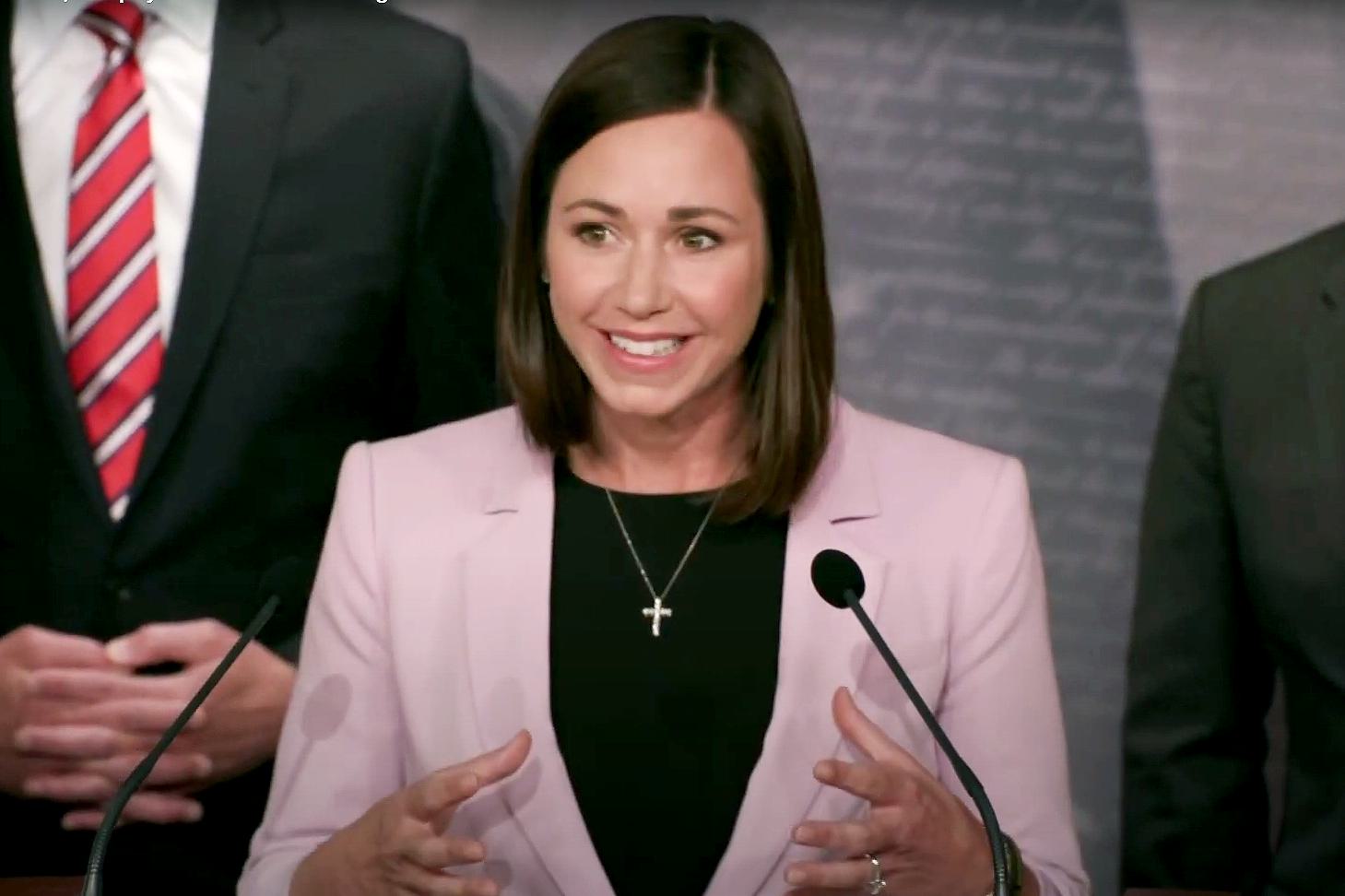U.S. Sen. Katie Britt (R-Montgomery) on Wednesday introduced a bipartisan bill to address the growing concern among parents about how social media could be negatively impacting their children.
The Protecting Kids on Social Media Act would require social media users to be at least 13 years old and have parental consent through the age of 17. The bill would also prevent social media companies from algorithmically suggesting content to users under the age of 18.
Britt announced the bill Wednesday along with U.S. Sens. Tom Cotton (R-Ark.), Brian Schatz (D-Hawaii) and Chris Murphy (D-Conn.)
“As a mom, nothing is more important to me than preserving the next generation’s opportunity to live the American Dream. Unfortunately, that Dream is turning into a nightmare for families across our country. This bill is a bold, critical step to protect our kids, secure their future and empower parents,” Britt said. “There is no doubt that our country is facing a growing mental health crisis and a deteriorating culture of violence. Children and teenagers across our nation are dying, families are being devastated, and our society is withering. The only beneficiaries of the status quo are social media companies’ bottom lines and the foreign adversaries cheering them on. I look forward to working with my colleagues on both sides of the aisle to enact the commonsense, age-appropriate solutions needed to tackle this generational challenge.”
According to Britt, the Protecting Kids on Social Media Act would:
Require social media companies to undertake rigorous age verification measures based on the latest technology, while prohibiting companies from using age verification information for any other purpose;
Prohibit children under the age of 13 from using social media, consistent with the current practices of major social media companies;
Prohibit social media companies from recommending content using algorithms to users under the age of 18;
Require a guardian’s permission for users under 18 to create an account;
Create a pilot project for a government-provided age verification system that platforms can choose to use; and
Provide the FTC and state attorneys general authority to enforce the provisions of the bill.
The popular Chinese-owned social media app TikTok has received a lot of criticism from parents and lawmakers due to the app's connection to the Chinese Communist Party and its influence on young users. The federal government and several state entities, including in Alabama, have banned the app from official government devices.
There has been bipartisan support in U.S. Congress to ban TikTok outright. The Restricting the Emergence of Security Threats that Risk Information and Communications Technology Act (RESTRICT) was introduced in March by U.S. Sen. Mark Warner (D-VA) with the expressed purpose of banning the app. However, many lawmakers have condemned the bill claiming that rather than addressing TikTok specifically, it would provide broad, overreaching power for the federal government to control the internet.
To connect with the author of this story or to comment, email daniel.taylor@1819news.com.
Don't miss out! Subscribe to our newsletter and get our top stories every weekday morning.










